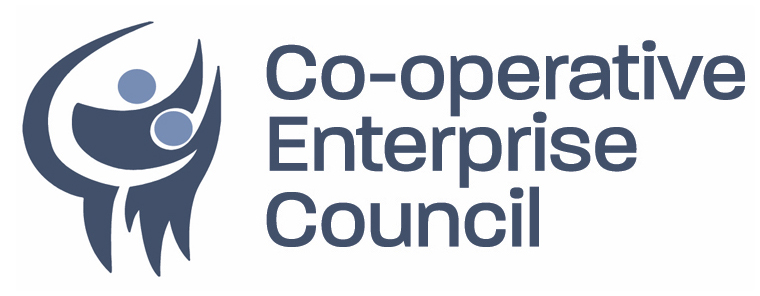Succession Planning – How Jason LeJeune Sold His Business to His Employees
Duncan Matheson of the Co-operative Enterprise Council of New Brunswick interviews Jason LeJeune on the succession of his business, Isaac's Way, to a worker-owned business.
Jason LeJeune. Photo from Isaac’s Way, Fredericton
In a recent blog on succession planning by CECNB’s Executive Director, Wendy Keats, she referenced Jason LeJeune, former owner of the popular Isaac’s Way restaurant in Fredericton. Today, we go a little deeper into Jason’s story to learn more about how and why he made the decision to sell his eatery to his core employees - rather than search out a traditional buyer. You’ll find that the decision connects nicely with his business philosophy.
How we started planning our succession
Did you notice the painting on the wall behind Jason in that clip? This video was shot at The Abby Café, a spot LeJeune owns in Fredericton’s downtown and that painting is one of many that line its walls and those of Isaac’s Way. They are all the work of local artists and are for sale, another manifestation of LeJeune’s philosophy of using his business to help the community. Consistent with his buying his food and drink inventory from local suppliers, and helping feed the homeless.
But while this desire to have Isaac’s Way continue as a genuine part of the community, his decision to not sell it on the open market was also based on economic practicality.
I didn’t see anyone doing it successfully
So that was factored into his reasoning – finding an outside buyer would be very difficult if not impossible, who would share his vision of continuing Isaac’s Way as a socially-minded business that is a true part of the community.
I’m a really good entrepreneur but…
When Jason took this all into consideration, he felt the best option potentially laid in selling the business to a group of his core employees. But people who work in restaurants don’t usually have the money needed to buy a restaurant, do they? So how did that work?
We had a group of employees who understood the culture of the business and we created an economic way for them to buy in…
The succession plan worked wonderfully for everyone involved - for Lejune, for his former employees turned owners, and for the community. But what about in other sectors, or when employee ownership isn’t an option? Could this model work where, for example, a co-operative or social enterprise could become the new owners? Lejune says yes to both circumstances.
It doesn’t happen by happenstance
That’s true what Lejune said right there – that economic development options are little understood. But this is one of those areas where the Co-operative Enterprise Council is there to help. The provincial government has expressed renewed support for co-operatives and social enterprises, and there are new programs offered by organizations like the CBDC to help launch and make these kinds of succession options successful.
The idea of shared ownership and the worker co-op business model is particularly appealing to millennials. Studies repeatedly show their preference for businesses with a social or community benefit. They can see the value of taking over a business from a retiring owner and putting their own “spin” on it, using innovation and technology to build new markets. The fact that New Brunswick has the most up to date co-op legislation in Canada means there are numerous options for how these businesses can be structured.
And as Lejune notes, that’s especially important for communities these days, because of the way the entrepreneurial world has changed.
The fabric of community
“Small businesses are the fabric of the community”
According to Jason, “Small businesses are the fabric of the community. People don’t brag about ‘this is a great place because we have 12 Tim Hortons and 6 Starbucks’, they’ll talk about the little independent cafe that does jazz night or something quirky. That’s the fabric of community.”
I wrote this blog to business owners who are, as the saying goes, “getting up there”, asking them to at least consider the co-op option or the possibility of selling to employees or a social enterprise when the time comes to move on. It’s certainly better than just turning off the lights and walking away, wouldn’t you say?
I would like to thank Jason LeJeune for taking the time to share his thoughts with us.
Check out CECNB’s Resource Page for information, case studies and other resources on business succession using the co-op model.
Duncan Matheson is on the Board of Directors of CECNB.

